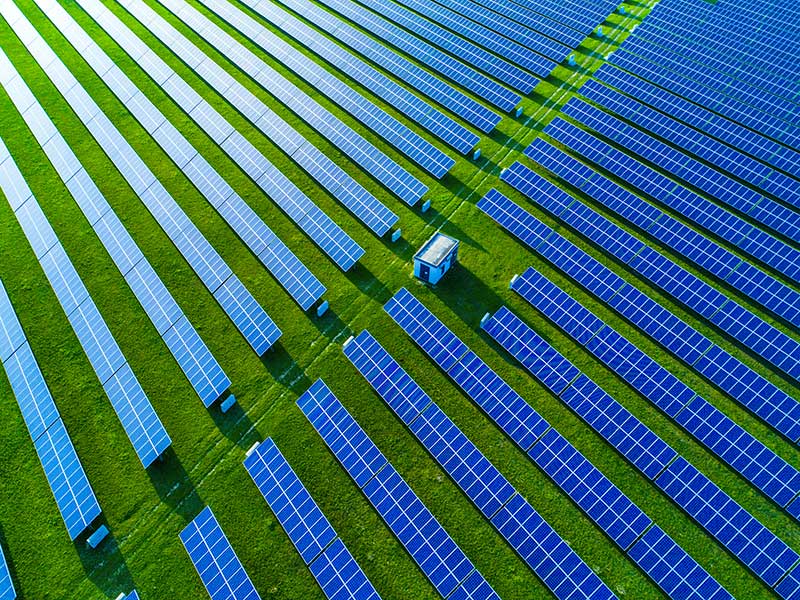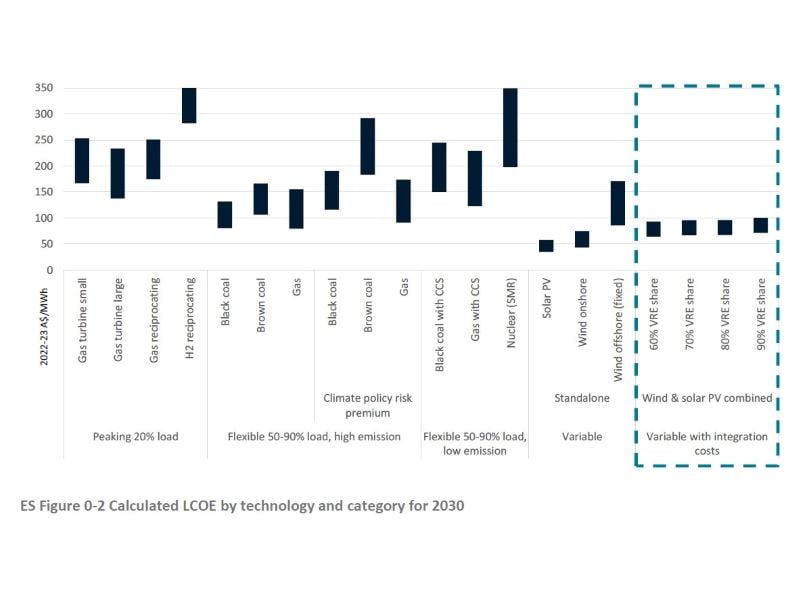Renewables remain the cheapest new source of electricity while nuclear power is forecast among the most expensive, as all energy sources face rising costs because of supply chain pressures.
That is according to the CSIRO and Australian Energy Market Operator’s (AEMO) latest GenCost report, a document which drives policy decisions around the country.
For years it has been used as evidence of the unfeasible cost of a nuclear power industry and a thorn in the side of parts of the Coalition pursuing a removal of the current prohibition.

To be released on Tuesday, the latest report again finds wind and solar remain the lowest cost new build electricity at less than A$100/MW in 2030, even after accounting for integration and varying shares of renewable energy being generated.
But for the first time since the report began in 2018, it forecasts the underlying costs of most energy technologies to increase.
On average the technology cost is up 20 per cent because of a supply chain crunch that started in the pandemic and has been exasperated by the Ukraine war.
The increases vary across sources, from nine per cent for solar and gas with carbon capture storage to 35 per cent for onshore wind. The variation is largely down to differences in material inputs and exposure to freight costs.
While several of the costs are expected to have peaked, many energy companies have locked in contracts for supplies and freight.
CSIRO’s Chief Energy Economist and GenCost lead author, Paul Graham said the energy sector is also concerned the increased costs may not subside in line with the forecasted drop in inflation, persisting as the global demand for clean tech only increases.
“There could be this extended kind of pressure on the prices of all those clean energy technologies,” he told InnovationAus.com.

CSIRO scientists have factored this rapid transition and associated demand in, still finding renewables to be the cheapest option, and in Australia still a more feasible option than nuclear.
The federal opposition is pushing for a new “conversation” about nuclear power in Australia, where it is currently banned.
Some coalition senators are pushing a bill that would reverse the ban, allowing small modular reactors (SMRs) to be built in Australia. The Senators attacked the previous versions of the CSIRO’s GenCost report earlier this year for not considering vendor claims in its forecasted costs.
“Proponents of nuclear SMR say they’re confident that they can build it for certain costs because they’re the vendor, but they’ve never actually built it,” Mr Graham said. “And we just don’t believe that that meets our standards for quality data.”
Only a handful of SMRs are in operation around the world and none are truly commercial projects, he said. Other countries like the UK, US and Canada are building them, but complete data is not available and still years away.
Using the best data available from a Canadian roadmap that has been independently reviewed, the CSIRO forecasts nuclear SMRs energy to cost A$350/MW in Australia in 2030 — more than three times that of wind and solar.
According to the national science agency, nuclear SMR does not currently provide an “economically competitive solution” in Australia, although it may be a viable low emissions technology option elsewhere.
“Australia has a couple of unique things that make nuclear a bit less likely here. One is because our renewables are such good quality we have another slightly lower cost alternative that can be built a bit faster,” Mr Graham said.
“Because it’s already here, it’s already commercially off the shelf. Whereas with nuclear SMR it’s not quite there yet commercially.”
InnovationAus.com will host a Capability Papers forum focused on Manufacturing and Energy Transition at the Museum of Sydney on August 15. Join industry and research leaders, together with state and federal ministers for this important discussion by reserving you seat here.
Do you know more? Contact James Riley via Email.

